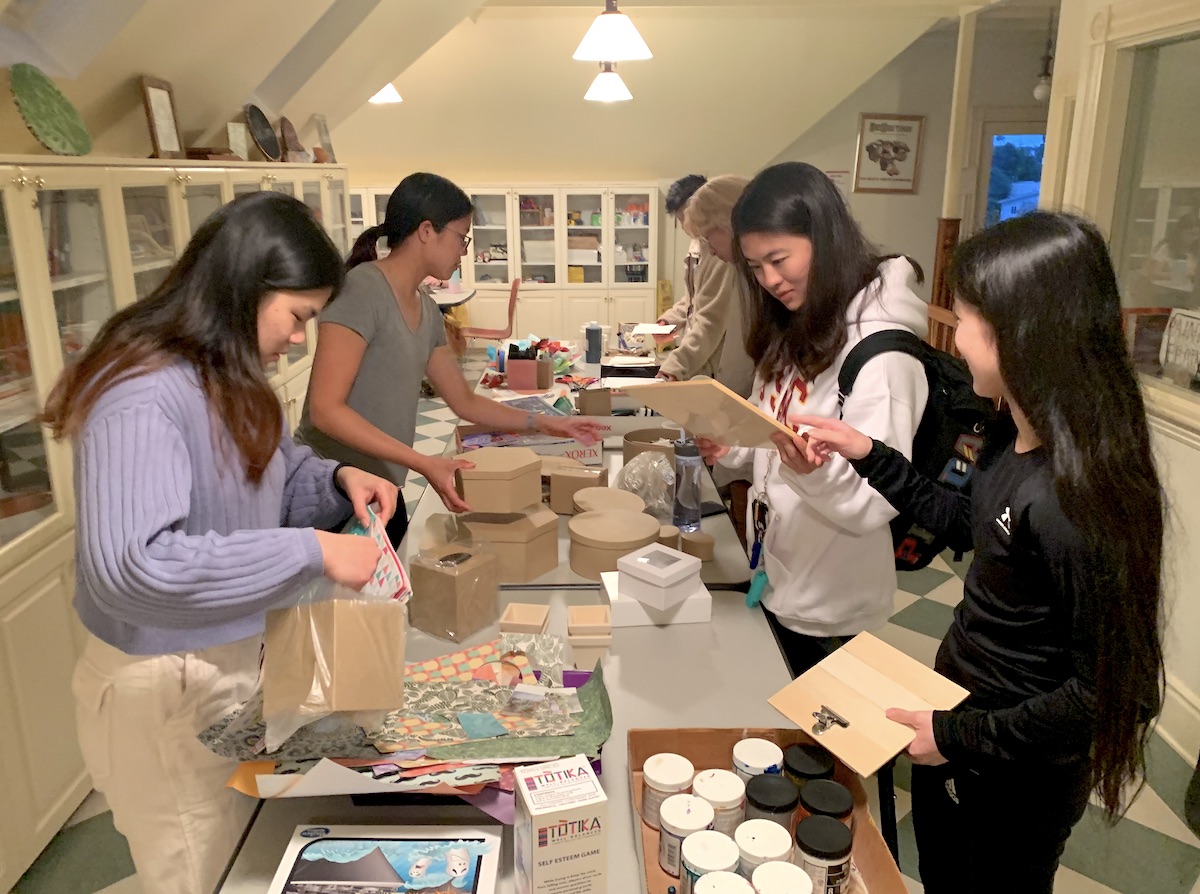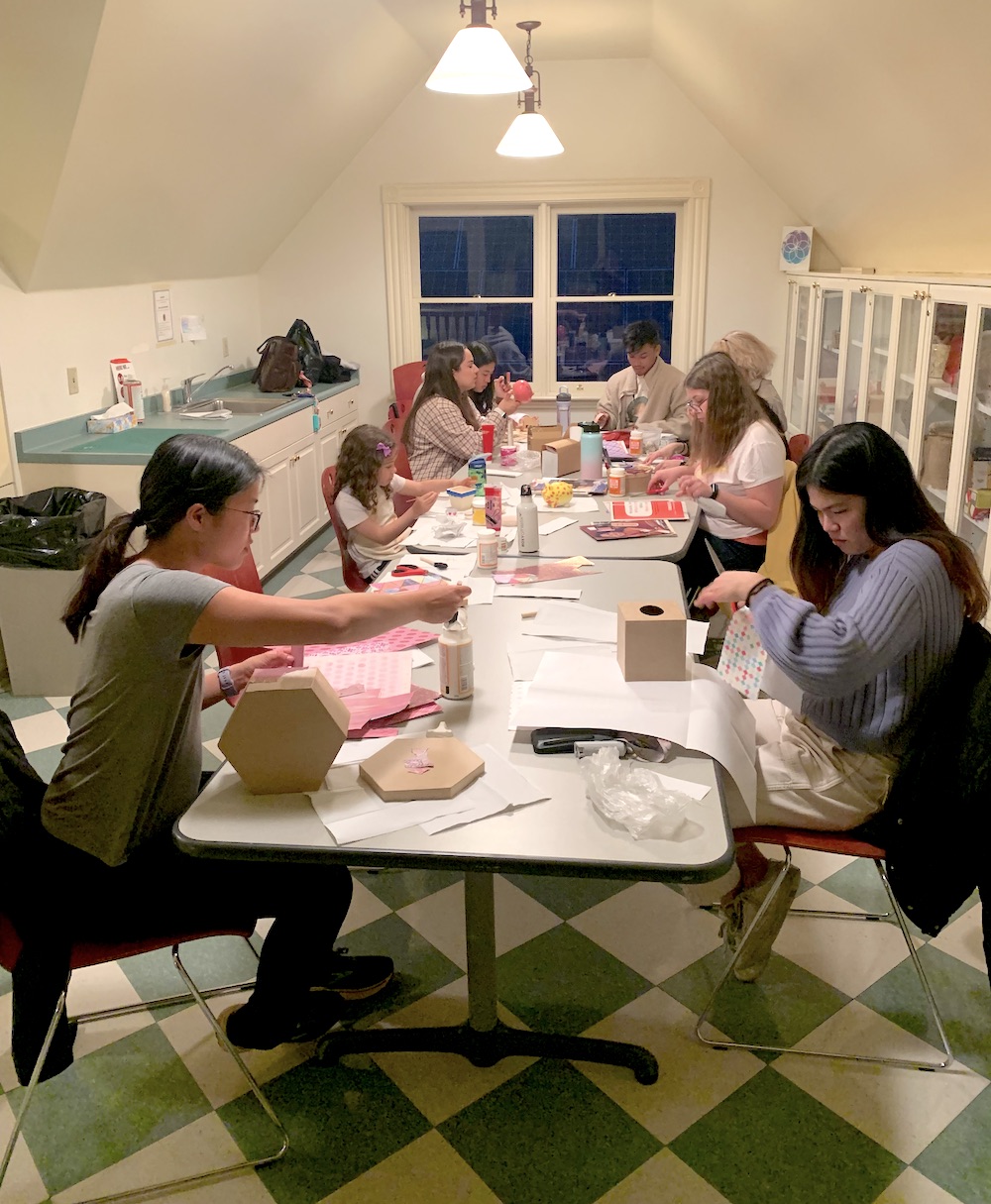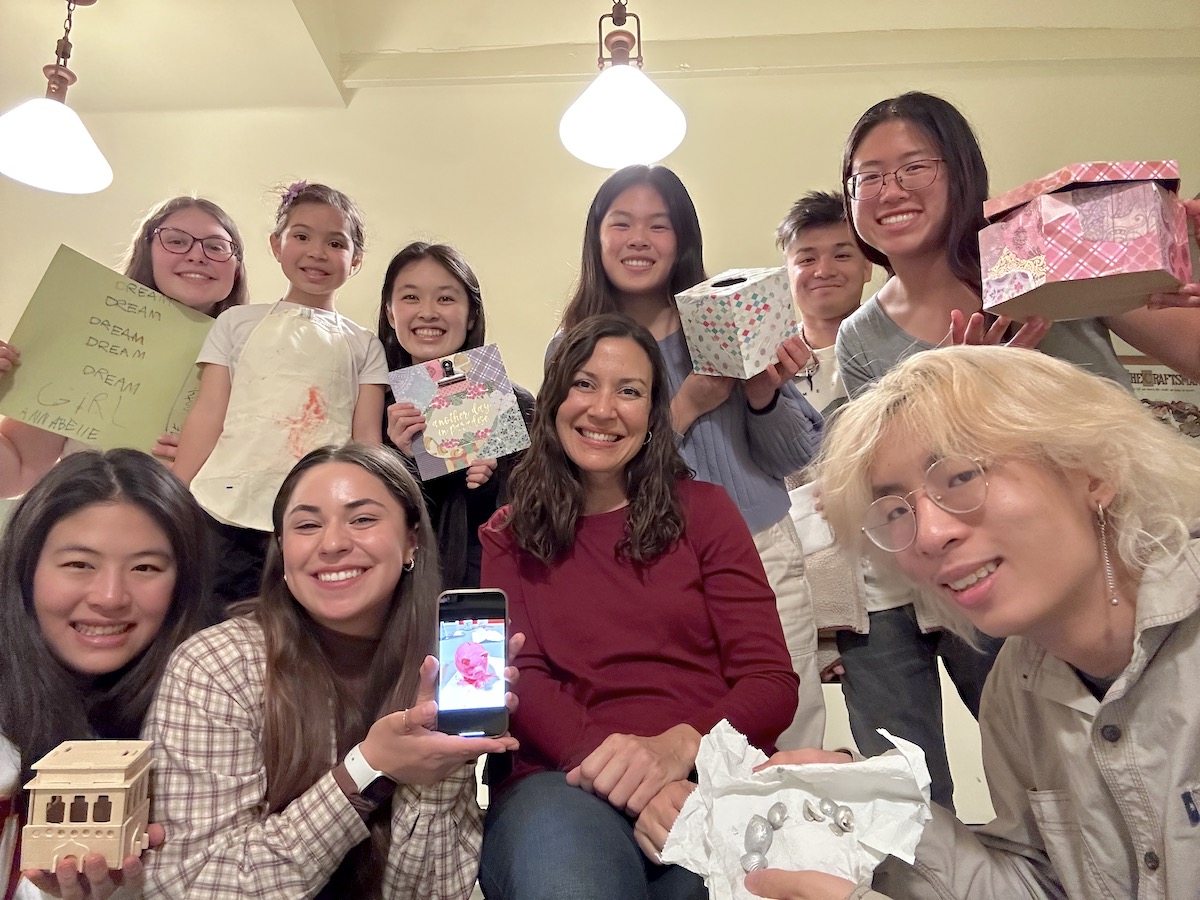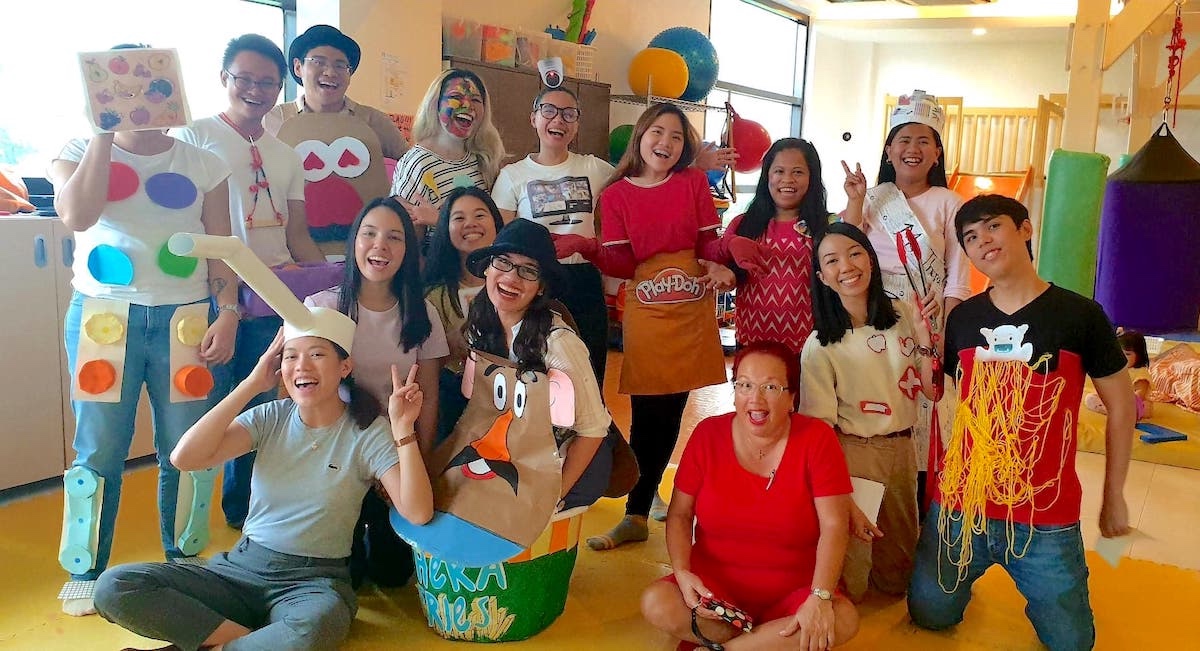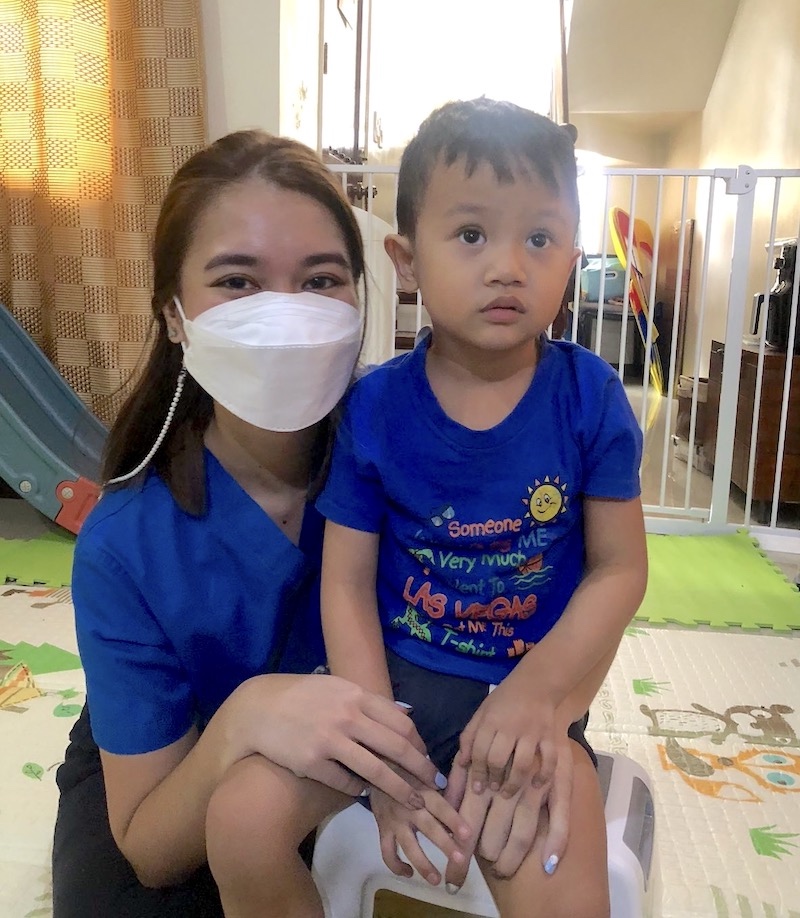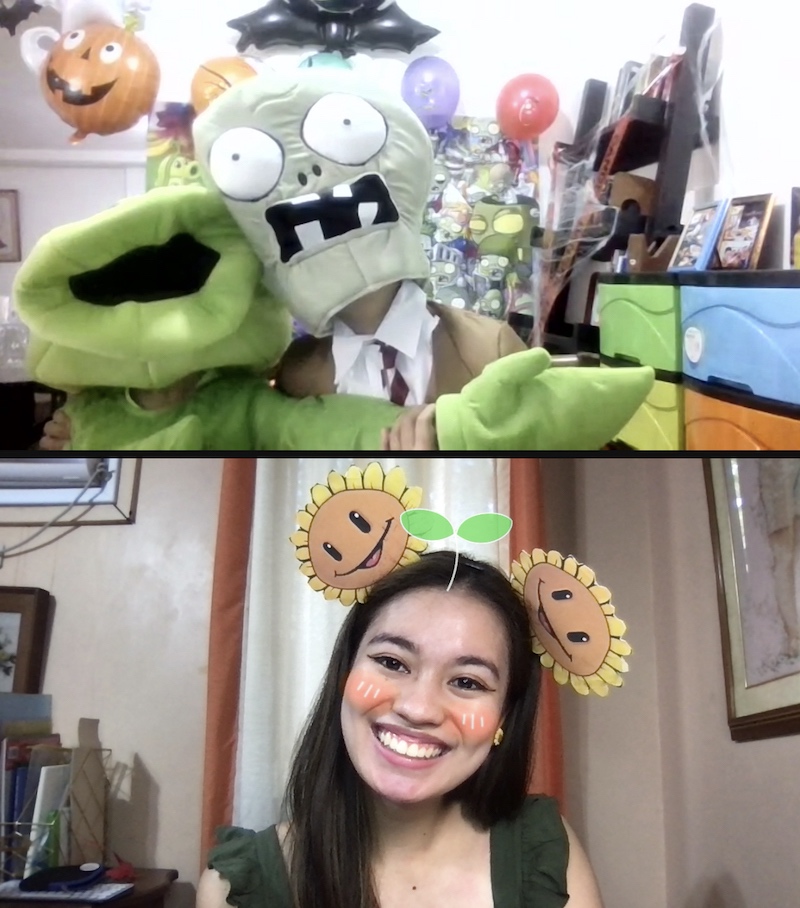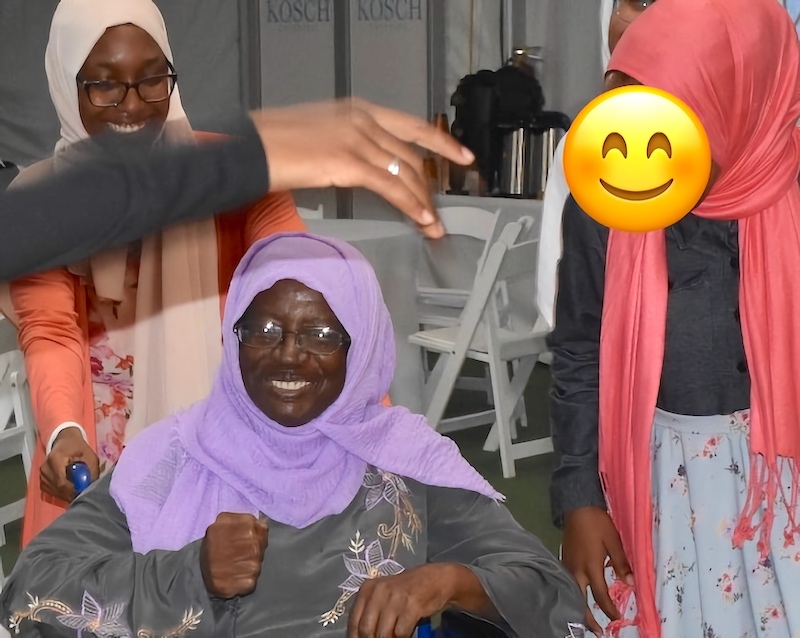Student Blog
What are OS/OT?
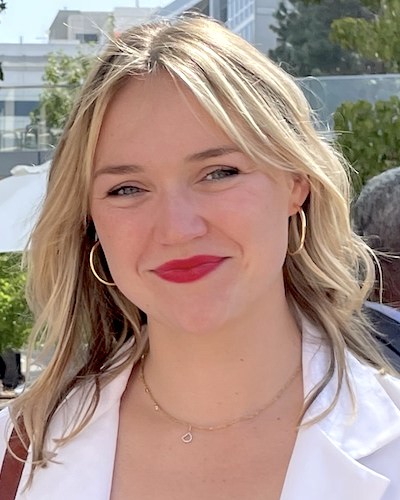
Life is For Service ⟩
December 3, 2023, by Brigid
What are OS/OT?
During my sophomore year of college, I spent every Friday afternoon in the sunroom of a long-term care facility in New York City. While the light would fight its way through smudged windows, the older woman who I had gotten to know would describe to me the way the sun would fill her fourth-floor East Village walk-up and bounce off the glass vases and shelves. Since the day she had fallen two years prior, she had not once been back. At ninety-four years old, she now required a wheelchair, shared a small room with another resident who played their TV at maximum volume, and had few possessions apart from a single book and a blanket she had knit while at the facility.
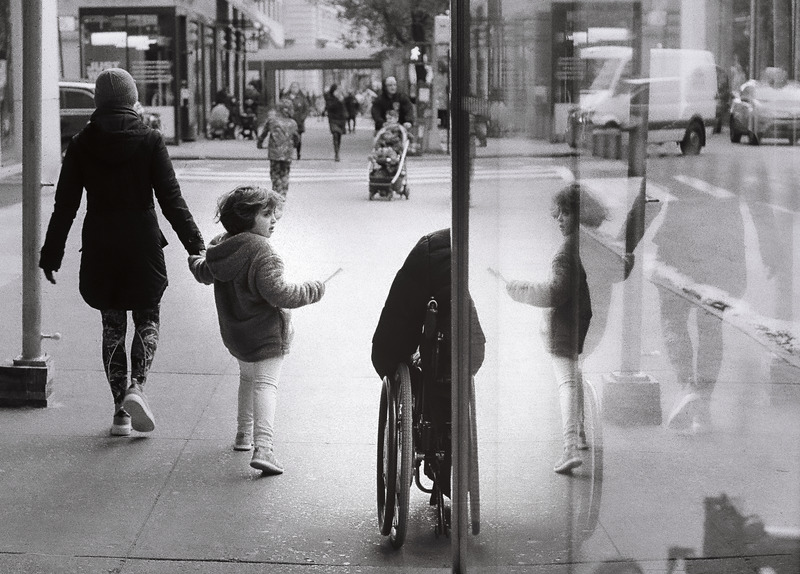
35mm by Elisabetta Diorio used with permission
Though not obvious to me at first, I eventually came to understand the power of what I could offer at that point in my life: companionship. I could help with the everyday tasks the doctors, nurses, and therapists often could not attend to: reaching the high-up shelves, remaking the beds, transporting residents to the horticulture and arts classes, and providing a consistent presence that may, in some small part, diminish the profound social isolation that so often accompanies chronic pain, illness, disability, and institutionalization.
Still, I wanted to do more. I wanted to be more useful and effective. I wanted to help the residents not just survive in their present state, but to thrive. While acknowledging the physical, mental, or structural barriers, I knew there had to be a better way to design each resident’s schedule, skills, and space to better serve them as an individual and respect their human dignity.
This desire to think outside the box brought me back to the occupational therapists I had encountered in my childhood as my parents had sought services to help my younger brother manage his dyslexia and dyscalculia. In their offices and sensory gyms, my brother learned how to read and write independently, improve his executive functioning, and address motor challenges, his confidence transformed in the process. I admired how the occupational therapists met my brother where he was without judgment and worked with him to develop the skills and knowledge needed to achieve his own goals and pursue his own passions.
For the remainder of my time in college, I studied human development, community, and the greater societal forces that shape us, while gaining practical experience. From collaborating with a palliative care physician on an undergraduate seminar for pre-health students to serving as an assistant teacher in a toddler research center, I was confirmed in my belief that, in the words of Fred Rogers, “life is for service.”
The practice of occupational therapy, in my view, sits at the intersection of our understandings of the human condition, capacity for growth, and interdependence. What we do, who we are, and what we may be capable of in this world is made possible through the presence of others who are able to, with tenderness, hold a mirror up to our strengths, values, and areas of need, while collaborating on possibilities and strategies to move forward.
This is what has brought me to occupational therapy.
⋯
The Pre-OT Club Gets Crafty ⟩
April 3, 2023, by The Pre-OT Club
Community Getting Involved School/Life Balance What are OS/OT?
Hello world!

Taylor Kamemoto
My name is Taylor Kamemoto. I am a current pre-OT student and a senior at USC majoring in Psychology and the Health & Human Sciences. I also have minors in Occupational Science (a.k.a. best minor ever), and Musical Studies in Flute Performance! I am super excited to introduce the Pre-OT Club’s blog!
If you’re an undergrad interested in Occupational Therapy, you should definitely check out the Pre-Occupational Therapy Club! We are a club focused on spreading knowledge and awareness about the profession of Occupational Therapy here on the USC campus and even beyond our community walls. We have a wide range of club meeting topics, including inviting clinician guest speakers, hosting graduate student panels, social bonding events like game nights, philanthropy events such as gardening and food drives, and engaging in shared occupations together. These events allow club members to connect and find a sense of community with other Pre-OT students while enhancing our knowledge about the profession of OT. I have been involved since my freshman year (yes, we even had Zoom meetings during COVID) and I now serve as the current president.
So far, my favorite event this semester has been Craft Night! We worked directly with our club’s faculty advisor, Dr. Amber Bennett, who helped us reserve a space in the Center for Occupation and Lifestyle Redesign®. Dr. Bennett provided us with craft supplies such as wooden items to paint, ceramic piggy banks, scrapbook paper, and magazines. We had no guidelines and let our creative juices flow! We each created something unique. I used scrapbook paper to collage a picture frame and a clipboard. After an hour of crafting, we shared our projects with each other, and I was very impressed with what everyone created! I saw a box with a collage lid reading “Fight On,” a wooden “Statue of Liberty,” and fun collages. Check out our crafts below!
Email us at .(JavaScript must be enabled to view this email address) to be added to our newsletter and get more information about our club! You can also follow us on Instagram at @uscpreotclub. We are always looking for more undergraduate students interested in Occupational Therapy and anyone who appreciates the nature of occupations and meaningful activities. Fight on, and welcome to our blog!
⋯
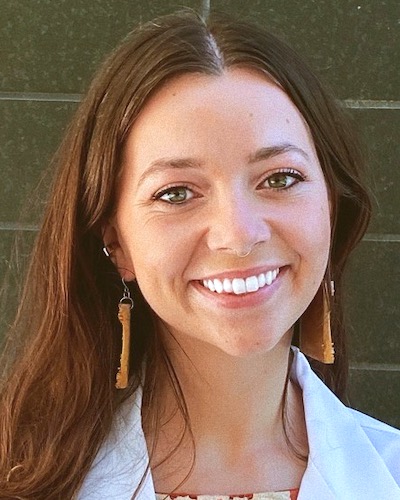
Tips for Your Personal Statement ⟩
November 4, 2022, by Leah
Admissions Life Hacks What are OS/OT?
Here are some tips and tricks on what helped me write my personal statement 😊
1. Reflect on what matters to you and see how it aligns with the school’s mission
I thought, why do I want to be an OT? I read through the division’s mission and most resonated with its commitment to inclusion. I then jotted down experiences and parts of my life that I most valued and thought related to this theme of inclusion.
2. Try finding a theme between your experiences to create a cohesive story.
This was a piece of advice I received from a previous mentor. I knew I had valuable experiences volunteering at an oncology camp, working in permanent supportive housing, and then working at a multiple sclerosis clinic. Still, these all felt like such different populations, so I needed to figure out how to share my story without feeling like I was jumping all over the place.
My mentor asked me questions such as:
How did one experience influence or lead to another?
What did you value in each of these experiences?
How did you continue to grow throughout these experiences?
Is there a commonality in how these experiences made you want to be an OT?
3. Get other eyes on your writing!
I know it can feel uncomfortable or even embarrassing to have other people look at what you have written. Still, I found it helpful to overcome that fear and get other people’s input. I wanted to see if my writing was conveying the message I wanted to share. For my statement, I had willing co-workers, mentors, and even roommates read through my essay. I received input such as: “this section is confusing” and “wow, I loved this story, focus more on that!” The most helpful thing I did was read my statement out loud with my roommate. I could identify awkward phrases, grammatical errors, and unnecessary words. Reading out loud was the most helpful in cutting my statement down to the required character count.
For all those applying this cycle, you got this!!
⋯

10 Things I Hate About Occupational Therapy ⟩
October 19, 2022, by Mika
International What are OS/OT?
The other night I was watching the classic romantic comedy, 10 Things I Hate About You, featuring the spunky Julia Stiles and the ever-so-charming Heath Ledger. Though I thoroughly enjoyed the scene of Patrick (Heath) dancing to Can’t Take My Eyes off You to swoon Kat (Julia), I think my favorite scene would still be the one where a tearful Kat lists down the 10 things she hates about Patrick in front of their whole class.
This scene got me thinking of a new idea for a blog post; and since World OT Day is coming, why not write a blog about 10 things I hate about OT?! Ironic, I know, but bear with me in this one.
So, without further ado, here are 10 things I hate about occupational therapy:
1. I hate that there is a lack of OTs.
2. I hate how OT services are viewed as a “privilege,” creating a lack of accessibility, especially for clients living in rural areas.
Back home in the Philippines, occupational therapy is deemed to be a profession in demand as there are more patients compared to the number of OTs. Although this may be a good thing for us in terms of job security, it is not quite ideal since a lot of patients who need our services are not receiving them immediately due to long waitlists and financial constraints. Most especially in rural areas, a lot of clients are usually left at home without proper care due to these issues. It is definitely not the best feeling to know how to help these clients but unable to do so due to lack of resources, time, and energy.
3. I hate how most OT principles are mostly based on Western perspectives.
Currently, I am taking a class in Occupational Science where my classmates and I are divided into small groups to discuss common issues in the practice of OT. One issue we discussed was that OT principles, frameworks, and models were mostly based on Western perspectives, making it difficult at times to adapt to non-Western cultures. With this, I think OTs, especially those who come from non-Western countries, should strive to adapt and promote their own culture and expertise to make the current knowledge more global.
4. I hate when some patients think OT is “magic” like a prescribed drug.
I say this not with the intention to put blame or shame on anyone, but rather, to put to light how a medical perspective is still favored over a more holistic one. Because of this, I strive to educate the caregivers of my pediatric clients to trust the process, to be patient with themselves and their children, and to always be mindful of the little wins they have in therapy.
5. I hate it when the profession is not known and often confused with Physical Therapy or with “Over Time.”
6. I hate how I get a professional identity crisis from time to time.
Numbers 5 and 6 are basically how you tell someone is an OT without saying you’re an OT. I would like to continue emphasizing the need and importance of Occupational Science to address these very common issues we face as a profession.
7. I hate when I was baptized by fire on my first day in my first job as a pediatric OT with tantrums, bites, and projectile vomit.
Honestly, I don’t hate it as much because I just think of it as a very funny fake-it-till-you-make-it story from my first years as a young professional. Looking back, I’m proud of myself for my growth as an OT in handling these situations and I thank my mentors in my pediatric centers (Shoutout to Therabilities South Therapy Center!) for guiding me.
8. I hate when parents or patients forget the big picture and get frustrated with their performance toward their goals.
I have worked with a lot of amazing parents who would move mountains for their children if they could. I would at times witness them (or even my patient) frustrated when their children are having bad days and would blame themselves for it. With this, I always reminded them that progress in therapy is not linear. There will be good days and there will be bad days. I would be the proudest therapist when my clients don’t let these bad days define their worth.
9. I hate when I could not hide my ugly-cry when I had to say goodbye to my clients before moving here to the States.
I would definitely say that my toxic trait is being a clingy therapist. It was absolutely the greatest honor to have been a therapist to my amazing, sassy, and silly kiddos whom I miss everyday.
My client and I during our last session before I left for the States. (Picture taken and posted with consent from the caregiver.)
Telehealth Halloween celebration with my clients! (Picture taken and posted with consent from the caregiver.)
10. (And in the most dramatic Julia-Stiles-performance I can give) “But mostly, I hate the way, I don’t hate [OT]. Not even close. Not even a little bit. Not even at all!”
I love my job and I believe that I have found my niche, my ikigai, in OT. Cheers to the profession that has helped me find purpose and meaning in my own life! <3
Advanced Happy World OT Day, everybody!
⋯

My Grandma and Why I Chose OT ⟩
September 23, 2022, by Aisha
Admissions Diversity What are OS/OT?
When my aunt first told me about OT, I was intrigued! I still didn’t quite know what OT was, but I liked the idea of a profession that considers a person’s mental and physical well-being. As a high school student, psychology captivated me because it emphasized the importance of mental health. At the time, I had concerns for my mental health and wellness. However, my mom was apprehensive about sending me to a therapist whose values didn’t align with ours. It was the catalyst that inspired me to strive towards becoming that person for people in my community. In college, my OS minor courses taught me how occupations could impact all aspects of an individual’s health.
I first witnessed the power of occupation with my grandma. She suffered a stroke several years ago, and I observed this lively woman, who loved to belly dance and cook, develop symptoms of depression and decline in function. I vividly remember bringing her to the dance floor at my cousin’s wedding. We were spinning around, dancing, and having a good time. From behind her wheelchair, I saw she was moving BOTH of her arms and raising them higher than she had in a long time! When I looked at the pictures later that evening, I saw the pure joy on her face. That picture reminded me how powerful meaningful activities could be in motivating people and supporting health and well-being.
After her stroke, my grandma was sent home from the hospital with no rehab services. The disparities in the healthcare system and the limited access to resources impacted her recovery. I want to help ensure underserved communities have access and the knowledge to advocate for resources/services. OT, a profession that holistically considers the person, their environment, and the occupation and focuses on what matters to the patient, is the perfect way for me to pursue that goal. I want to be that person my younger self and individuals like my grandmother needed while consistently practicing cultural humility and respecting unique cultures.
⋯






